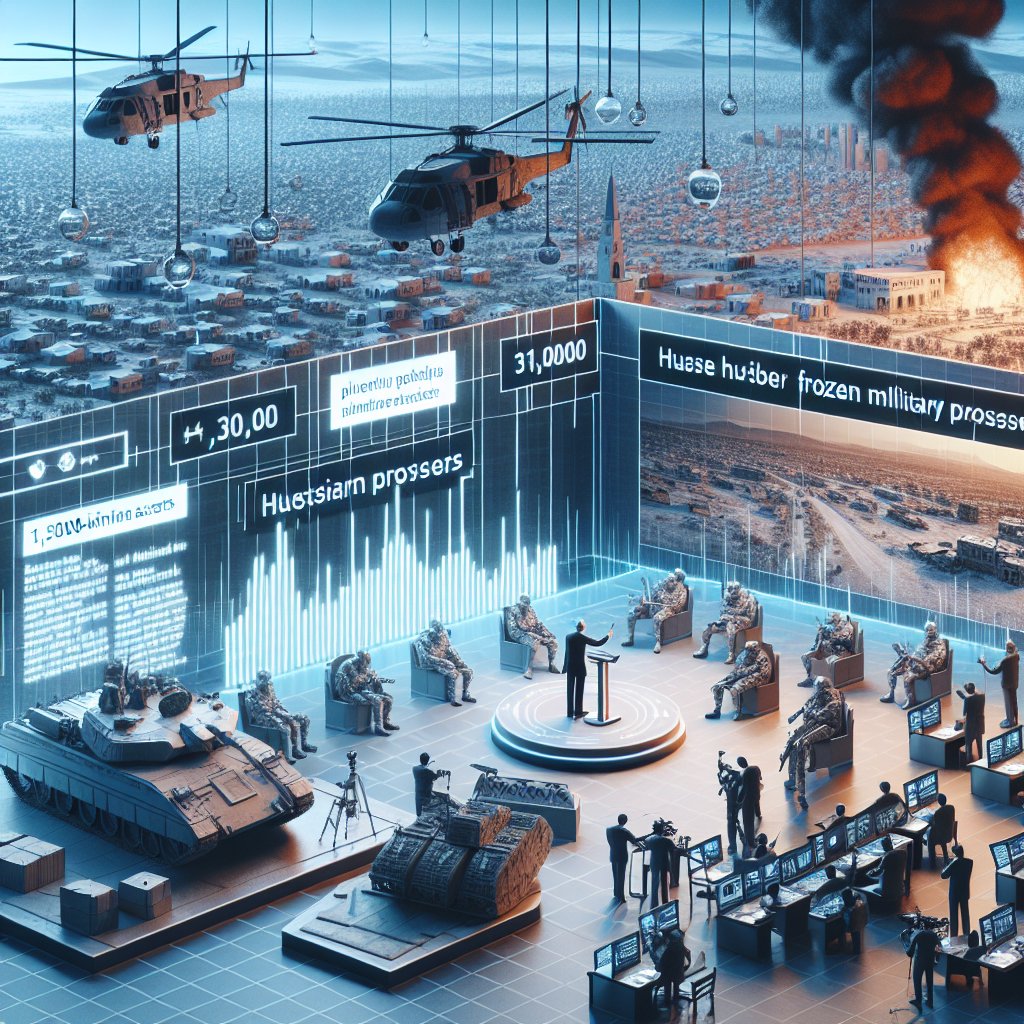Image created by AI
Ukrainian Military Losses Mount as Global Leaders Call for Action and Resilient Russia Advances
In an extended press conference held in Kyiv, Ukrainian President Volodymyr Zelensky disclosed that the nation had lost 31,000 soldiers since the onset of Russia's full-scale invasion, marking an intrepid, albeit somber, admittance as the conflict persists into its third year. The revelation comes at a pivotal moment, as Zelensky prods the US Congress to expedite a crucial $60-billion aid package amidst mounting military pressures from a resilient and advancing Russian force.
Openly addressing the straits of Kyiv's defenses, which face an ammunition deficit and dwindling troop numbers, President Zelensky has placed significant emphasis on the role of Western support, particularly from the United States. With the House Republicans poised as the gatekeepers to the proposed aid, President Joe Biden's national security advisor highlighted the urgent need for financial backing from Congress, a plea underscored by the on-the-ground realities of a grueling Eastern European stalemate.
Amid the international calls for aid, British Prime Minister Rishi Sunak has taken a bold stance on the financial front. In a geopolitical climate fraught with the complexities of international law and economic stability, Sunak has penned an impassioned editorial that underscores the import of decisively reallocating the frozen Russian assets, including a burgeoning interest, to facilitate Ukraine's military expenditure.
These developments come as the war sees a shifting tide, with Russian forces capturing the strategic city of Avdiivka and pressuring Kyiv's line of defense across a 1,500-kilometer front. In the wake of these actions, the European Union and various nations within the Group of Seven have bolstered their commitments to Ukraine’s cause, both in terms of financial aid and increased weapons supply.
Eu leaders and other Western officials, such as Canadian Prime Minister Justin Trudeau and European Commission President Ursula von der Leyen, have traveled to Ukraine to affirm their unwavering support for Ukraine’s sovereignty and its military campaign. This concordance of international support juxtaposes the on-the-ground realities of a Ukrainian military regimen striving to match the firepower and manpower of a relentless opponent.
Looking back on the timespan of the conflict, a contrast is visible in the state of Ukraine's resistance. Boasting significant territorial victories in earlier phases of the invasion, Ukraine now grapples with challenges in domestic armament production and the mobilization of forces, combining to form a complex obstacle to any further offensive actions against Russian entrenchments.
Nevertheless, progress has not been entirely elusive for Kyiv as strategic uses of Western-donated defense systems, agile infantry units, and innovative drone strikes have shifted certain tactical balances in favor of the Ukrainians. Even as the nation's military chief is replaced amid the strife, the call for unity and innovative asymmetric responses to the Russian aggressor remains robust.
Parallel to the unfolding conflict in Ukraine, neighboring Belarus has concluded its first nationwide election since massive political crackdowns, though the event has been frowned upon by international observers for its lack of democratic integrity. The situation in Belarus continues to compound the regional complexity, with President Lukashenko's administration under scrutiny for its role in facilitating Russian military operations.
Amidst the narratives of loss, strategic resilience, and the reverberations of global policy decisions, the conflict in Ukraine remains emblematic of the broader contestations shaping the international order today.










